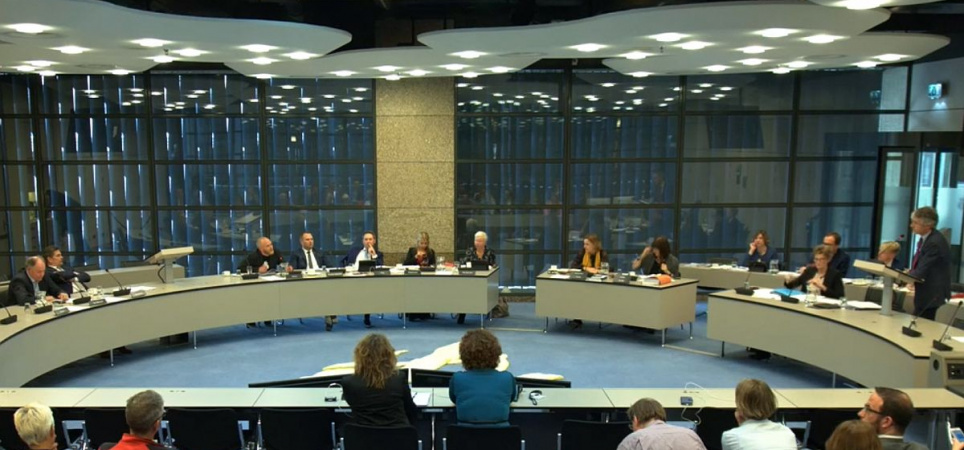Teacher debate closed without new investments
A few hours after thousands on strike teachers, support staff and directors passed through Amsterdam in a long procession (“The measure is full”), the teachers' debate was concluded yesterday afternoon in the House of Representatives in The Hague without new financial commitments.

Picture: House of Representatives
To the current state of affairs in primary education - one workload agreement and 270 million euros for salary improvement - the minister could not add concrete investments. The announced strike on Friday April 13 in Noord-Brabant and Limburg continues as planned. The teachers' debate (looking back is possible here) was in February aborted prematurely due to lack of time.
Slob went through a range of possible measures. Such as making it fiscally more attractive for part-timers to expand their scope of employment, something that is being investigated at the Ministry of Finance. And encouraging lateral entrants who come to teach from outside the education system.
Side entrants
“That can have added value if it is done responsibly,” says Slob. Although the minister acknowledged that there are different ideas about the initiative. The supervision of lateral entrants can actually increase the workload at school, especially in the beginning. “I think that deploying these teachers initially takes more time,” said SP MP Peter Kwint.
The so-called silent reserve, certified teachers who do not work or work outside of education, were also discussed. Can the teacher training colleges and teacher training courses not all send these people an email, asked GroenLinks MP Lisa Westerveld. Due to privacy rules, writing to an entire group is no longer possible, says Slob. Westerveld recalled that her old education still knows where to find her otherwise.
About the silent reserve: can't the primary school teachers all send an e-mail to their former students?
The House wants to know how much education money there is leaked through employment agencies benefiting from the teacher shortage. More than 3 percent of total personnel expenditure in 2015 went to personnel who are not employed. Those figures are somewhat outdated and, moreover, they do not only include temporary employment contracts. That is why Slob has asked his civil servants to provide more insight into the structure of personnel costs.
The minister did have concrete figures on the non-statutory benefits in primary and secondary education, 103 and 40 million euros respectively. Slob believes that this safety net for teachers should be phased out.
Not a crystal ball
Member of Parliament Westerveld missed a comprehensive plan against the teacher shortage, which lists the measures and results over time. "How do we know that what you are doing will be enough?" After which Slob again started a list, underlined that the effects are measured in the meantime, but had to admit that he has no crystal ball.
The House has already requested a new consultation, in which a number of motions are to be expected. For example, a majority has signed up to the discontinuation of the Education Cooperative. Minister Slob said that he had just agreed with the teachers' parliament to give the cooperative until the summer to make a plan for a new start. There are also calls for education administrators to be placed under the collective labor agreement for the staff.


